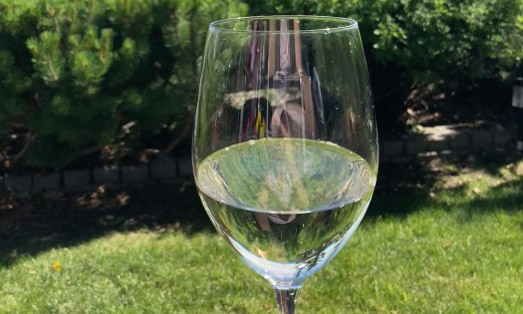Before we get too far down the path of being a wino, we need to set a baseline of our language. Although, I always aim to stick to my down-to-earth prairie roots (whether I actually am down-to-earth is debatable), to be a true wino we do need to use some wine language. The world of wine can become very pretentious (in my opinion) but there are some words we should have in our vocabulary. If for nothing else, you can sound like you know what you are talking about. There are lot more terms out there that we may explore in the future, but we are keeping it simple and just tackling the most common terms we will be using.
Tannins: is a chemical compound found on the skin if the grapes. It gives wine that is made with skin exposure (red wine and some roses) that drying sensation on the tongue. This is often the component of red wine that people don’t like, but it provides structure to the wine and in a well-balanced wine shouldn’t be off putting.
Balance: There are 4 factors that are critical in balancing wine; sweetness, fruit intensity, acidity, and tannins. Being in balance just means that there isn’t one of these factors that overpower the others. A balanced wine is usually what makes you pour the second glass.
Finish: This does not mean the end of the bottle. It means how long the flavours stay in your mouth after the wine is gone, so if the blackberry, vanilla, green apple flavour last long after you have swallowed the wine than that is a long finish.
Body: the body of a wine is how the wine feels in your mouth, how does it coat your tongue. If it slides off kind of like water, it is a light body wine like lots of pinots. I like to think of it as the difference between broth and soup. Broth would be like a light bodied wine and depending on the soup it would be a medium to full bodied. Just to be clear, being light or full bodied is not a bad thing (see balance), it is just part of the structure of the wine and helps define what kind of wine it is in.
Acidity: I am sure we all know what acidity is, I won’t go into science here and PH levels. Acidity is a key structural component to wine. When drinking wine, it hits the back of your mouth and if after you have swallowed the wine the amount that your mouth waters indicates the acidity of the wine. We will discuss this more when we do wine tasting.
Sweetness: is measured by the amount of grams of sugar in the wine. The classification of this is controlled in most countries, so if you like dry wines, they are similar across the board especially across the EU wines. The words below describing the sweetness are often even put on the label of the wine. Although some wines may have a jammy/sweet fruit flavor profile, it may still be considered a dry wine.
Common words that are used:
- Dry/Sec/Secco/Seco/Brut/Trocken/Szaraz
- Off-Dry
- Medium Dry/Semisecco/Semi-seco/Halbtrocken/Demi-sec
- Medium Sweet/Moelleux/Amabile/Adamado
- Luscious/Suss/Edes/Dulce/Doux/Dolce/Doce
Vintage: majority of wines are a blend of juice from various years/estates/vineyards. This is done this to keep wines consistent from year to year as like any crop weather and other environmental factors will impact the growing of the grapes each year. So a vintage wine is made from the best grapes of that one year. They do not make vintages every year, just if the wine makers feel that their best grapes will result in a special wine. These will be marked with putting the year on the bottle. Otherwise no year will be mentioned except maybe a bottled date.
Tainted/Turned Wine: Oxygen is the Jeckell and Hyde of wine. Oxygenation to wine can bring out the best flavours, soften tannins and helps with the aging process of wine. But too much oxygen will turn the wine into something you do now want in your mouth. This is why at restaurants they ask you to taste the wine before they serve it. If it smells/tastes musty, wet cardboardish, vinegary or anything else unpleasant it likely is a tainted wine. Don’t drink it.
I am sure I will come up with many other words to tell you, but for now this will do. If you have any questions, please comment or reach out via the Contact page.
